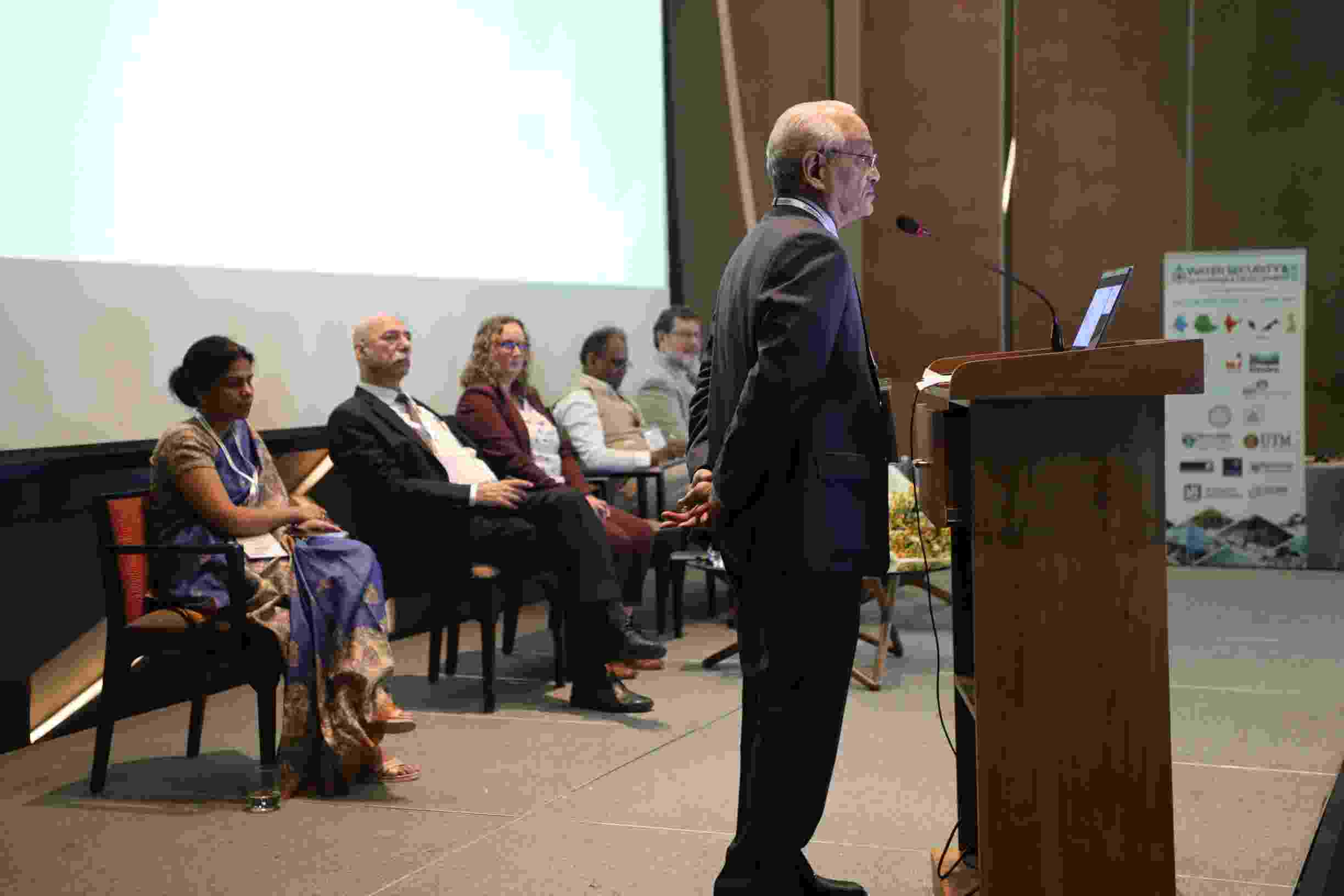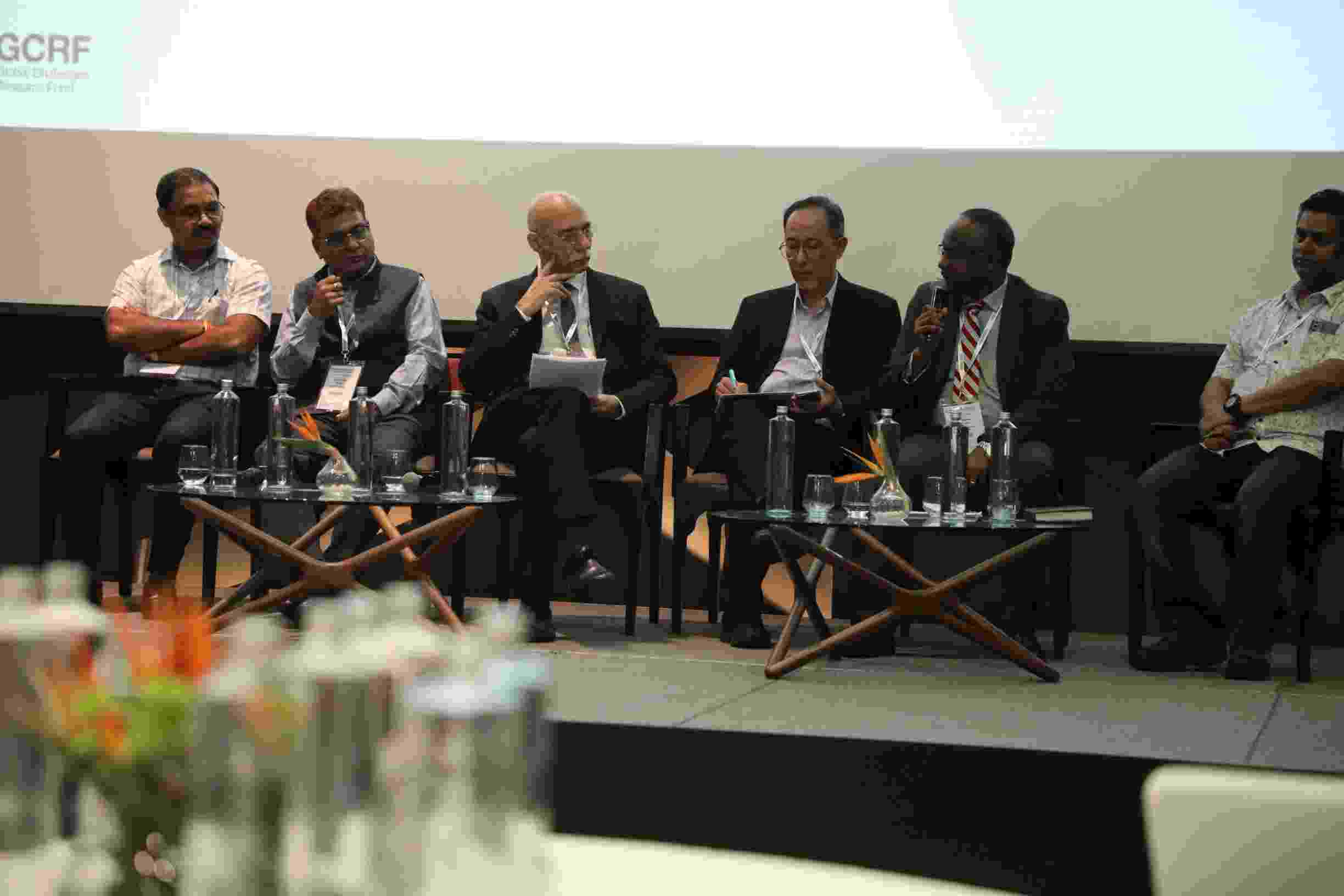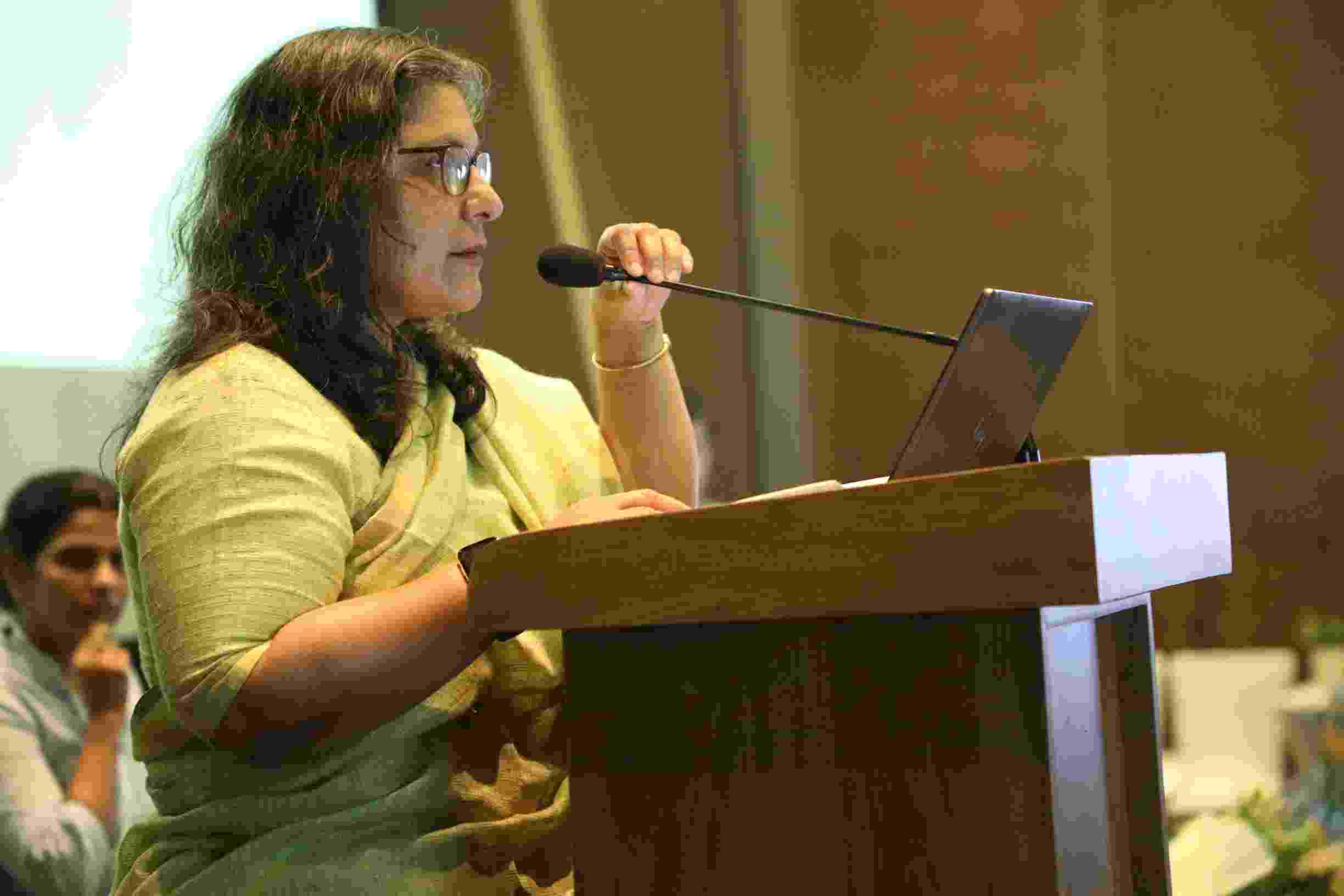Driving change through partnerships and collaboration
Reflections on working with the Hub by distinguished guests at our Assembly in Delhi.
17 December 2023
Cooperation and partnerships have always been central to the Water Security Hub’s way of working. The design of our collaboratory model enables the Hub to act as a neutral connector, bringing stakeholders from all aspects and backgrounds within water security together to collaborate as equals. Across our global team, stakeholders play a crucial role in informing our work, contributing directly to both local and global water security research and solutions.
Our November 2023 Hub Assembly in Delhi offered a crucial opportunity to hear different perspectives and learn directly from a variety of water security actors, ranging from communities living in informal settlements along the Barapullah Drain; to government figures creating policy and agencies implementing water management processes.


Hon'ble Justice Swatanter Kumar's inspiring talk
To open the Hub Assembly we were joined by distinguished guests; Hon'ble Justice Swatanter Kumar, former justice of the Supreme Court of India and former chairperson of the National Green Tribunal; and Shri G Ashok Kumar, Special Secretary and Director General of the National Mission for Clean Ganga (NMCG) - a core partner organisation in our India Collaboratory. They each reflected that whilst water security has come a long way in both attention and action, there is still a long way to go, and projects like the Hub are important in driving change. Hon'ble Justice Kumar emphasised that collaborative, joined-up effort is the only way forward for achieving water security: “We must pass the earth on in a better condition to the next generations. We have the legislation to do this; the implementation is the concern, across the globe. Academia, experts, scientists, administration must all work together.”
Whilst they each acknowledged these challenges, they also shared inspiring words of wisdom and hope:
“It is reassuring to see such a galaxy of people here together to talk about this vital topic” - Hon'ble Justice Kumar
“We are taking on a very important subject which did not have the right attention. I believe it's now on its way to a proper place in policy and the system” - Shri G Asok Kumar


Q&A in one of the panel discussions
Following the inspiring open from our guests, we were privileged to have a number of stakeholders join members of the Hub team for two panel sessions - one focused on water systems; the other on policy, governance, and values. Echoing earlier remarks, panellists emphasised that progress towards SDG6 hinges on collaboration - water security in Delhi is complex, with multiple organisations and levels of government involved. Additionally, water reform that leaves no one behind must leave no one out: “The only way to solve problems is with democratic, inclusive solutions and engagement”, "There must be a column in all projects, all research, for the communities and the people". Panellists also highlighted the importance and benefits of knowledge exchange - whilst we operate in different contexts, we’re often working on common issues and can help each other by sharing insights and experience gained: “The problems we are facing are not unique to India - we can share and learn from each other”.
One of our guests also wanted to inspire session participants, reminding everyone that we can help contribute to and drive change in other avenues outside of active, directed work: "Our position as academics amplifies our research - when we take it to the classroom we help raise awareness of important issues".
Prof Miguel Peña Varón, from our Colombia Collaboratory, took part in one of the panels: “I think it is really important that stakeholders dealing with everyday issues around water get to attend and present their experiences and thoughts in our meetings. One key issue arising from this sort of engagement is the process of knowledge democratisation, where different stakeholders contribute and have access, in a two-way fashion, to discussions which are very relevant for them and not only to the exclusive domain of the academic or scholarly community.”


Ms Debashree Mukherjee addresses the Assembly
Finally, to close a week of important knowledge exchange, collaborative work, enlightening discussion, and forward planning for the final stages of the Water Security Hub, we were joined by Ms Debashree Mukherjee, Secretary of the Ministry of Jal Shakti. Ms Mukherjee reiterated the importance of putting community and stakeholder involvement at the heart of our work, and the important role projects like the Hub play in enabling deeper communication and coordination between agencies and organisations across water sectors and systems: “We need to unite the efforts of all actors.” Professor A K Gosain emphasised that an integrated, systems approach that brings all that together and unites different disciplines, is the key to driving cutting-edge research towards the collective aim of water security. The Hub is an active agent of connection - we connect others, but we can also help sustain those connections through the trust we have built.



